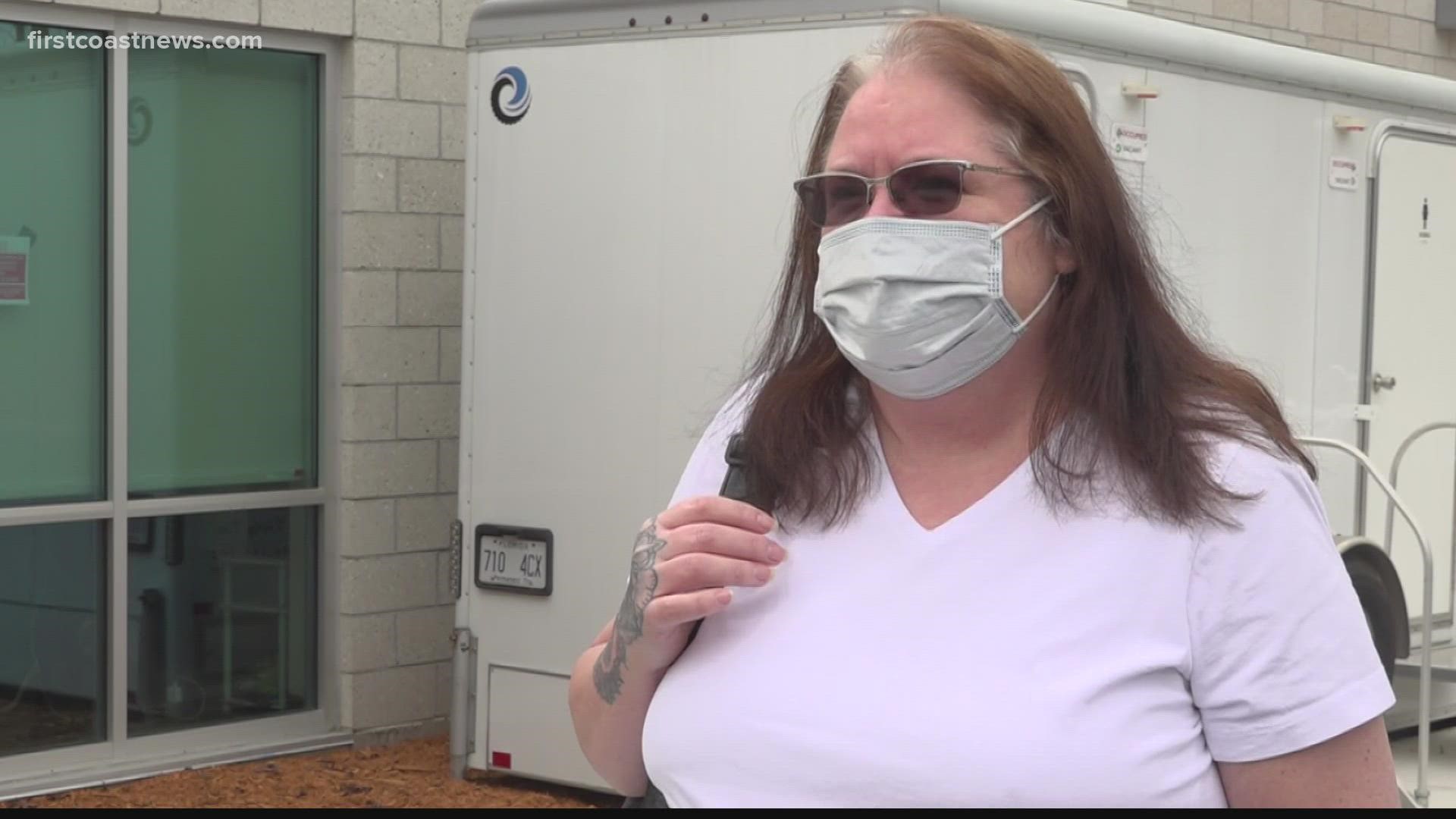JACKSONVILLE, Fla. — Jacksonville Beach resident Lisa Simpson has been dealing with COVID-19 for two weeks and was looking for something to help ease her symptoms.
Her friend suggested she visit the Southside Community Center and get monoclonal antibody treatment.
"When he came and got this yesterday he said he felt immediately better about a half hour or so and he's feeling great now," Simpson said.
She was hoping to walk out of the center feeling the same way, but instead she was met with a big red sign saying the treatment center had been shut down.
The FDA has banned Eli Lilly and Regeneron monoclonal antibody treatments after evidence from the treatment manufacturers suggest they aren't effective against the Omicron variant.
Simpson says she was aware the treatments were ineffective against Omicron, but was still frustrated the treatments had been taken off the table.
"This is ridiculous. I don't understand the why's of it why the FDA would shut it down," Simpson said.
Her question is one several people have and it's easily answered by Dr. Shalika Katugaha, the System Medical Director of Infectious Diseases at Baptist Health.
"What a monoclonal antibody treatment is it targets the spike protein of the SARS‑CoV‑2 so you really have to match your antibody to the variant," Katugaha said.
Imagine it as a lock and key. The variant, the lock, the protein, otherwise known as the treatment, the key. You can fit most keys into a lock, but unless it's a perfect fit, that key is pretty useless.
So what key does fit the lock and do we have it?
Dr. Katugaha says treatment pills and Sotrovimab, another monoclonal treatment that works against omicron, are available but in short supply and hard to find.
It's a problem that's brought people, like Simpson, back to square one.
"I still have a low fever, so I'm not going out and exposing my friends and everyone else with a fever. I'm going to continue to isolate until the fever stops," Simpson said.
Dr. Katugaha says treatment pills could be made more readily available soon, but there is no timetable as to how soon.
In the meantime, she advises people like Simpson to reach out to their primary care physicians for treatment options.

